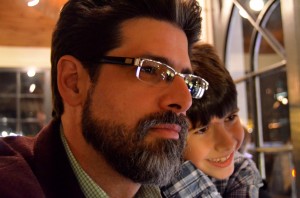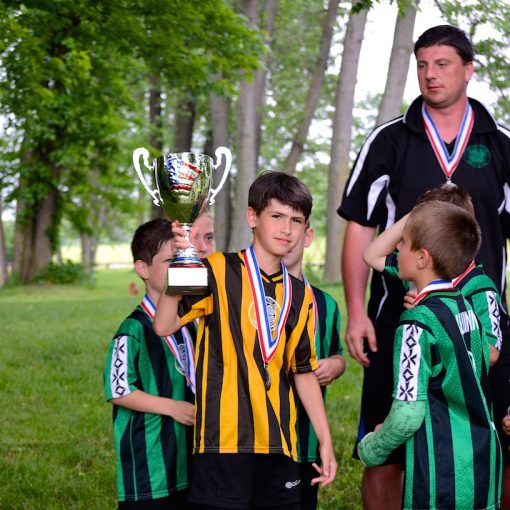One of the delicate balances of our new life is celebrating Mother’s Day and Father’s Day, first and last days of school, birthdays, Easter, Christmas, Valentine’s Day, Groundhog Day…you get the picture, the list of celebrations is endless…how do we celebrate life with Izzy and honor Mack as an important and continued member of our family at the same time?
 In practical terms, both Chris and I buy cards for each other and Izzy that we know Mack would’ve loved or picked out himself. I felt Mack’s fun spirit with me when I found a perfect Father’s Day card for Chris with “Dad, you’re the best” written inside, which is exactly what Mack often said to Chris. It was also accompanied by a really bad recording of “You’re unbelievable!” which made us all laugh. Mack definitely would’ve picked that card, Izzy said. Buying a gift or a card on behalf of Mack for one another, or for Mack, has come intuitively.
In practical terms, both Chris and I buy cards for each other and Izzy that we know Mack would’ve loved or picked out himself. I felt Mack’s fun spirit with me when I found a perfect Father’s Day card for Chris with “Dad, you’re the best” written inside, which is exactly what Mack often said to Chris. It was also accompanied by a really bad recording of “You’re unbelievable!” which made us all laugh. Mack definitely would’ve picked that card, Izzy said. Buying a gift or a card on behalf of Mack for one another, or for Mack, has come intuitively.
As I continue my mourning journey and read further into grief I have recently been introduced to the work of Dr. Alan Wolfelt, the director of the Center for Loss & Life Transition. Wolfelt created the widely used “companioning model versus a treating model for mourners” and he calls this the ritual of continuity, which is recognizing Mack as a part of our family and including him in the festivities. Wolfelt writes this:
“Mourning in our culture isn’t always easy. Normal thoughts and feelings connected to loss are typically seen as unnecessary and even shameful. Instead of encouraging mourners to express themselves, our culture’s unstated rules would have them avoid their hurt and ‘be strong.’ “But grief is not a disease. Instead, it is the normal, healthy process of embracing the mystery of the death of someone loved. If mourners see themselves as active participants in their healing, they will experience a renewed sense of meaning and purpose in life.”
The notion of actively participating in experiencing the mystery of death and the journey of healing is energizing for me. Someone I deeply love is not within arms reach but a constant presence in my heart, mind, and spirit. I want to better understand what I am experiencing. I think we have begun to more fully understand the notion that our grief is in direct relation to our love: we grieve because we love. And love remains.
Dietrich Bonhoeffer (1906-1945) offers some insight:
“There is nothing that can replace the absence of someone dear to us, and one should not even attempt to do so. One must simply hold out and endure it. At first that sounds very hard, but at the same time it is also a great comfort. For to the extent the emptiness truly remains unfilled one remains connected to the other person through it. It is wrong to say that God fills the emptiness. God in no way fills it but much more leaves it precisely unfilled and thus helps us preserve — even in pain — the authentic relationship. Further more, the more beautiful and full the remembrances, the more difficult the separation. But gratitude transforms the torment of memory into silent joy. One bears what was lovely in the past not as a thorn but as a precious gift deep within, a hidden treasure of which one can always be certain.”









2 thoughts on “How do we celebrate?”
There are always words that resonate. Thank you for this “one bears what was lovely in the past not as a thorn, but as a precious gift deep within, a hidden treasure of which one can always be certain.” There is that.
Thank you Elizabeth. Well said. Well shared and a gift to all of us.